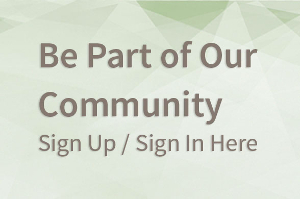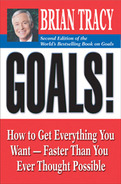BK Blog Post
Five Poor Excuses for Ignoring Your Past
 Posted by
Jeevan Sivasubramaniam,
Vice President, Editorial,
Berrett-Koehler Publishers Inc.
Posted by
Jeevan Sivasubramaniam,
Vice President, Editorial,
Berrett-Koehler Publishers Inc.

Author John Schuster's new book is all about the power of your past and how it can be an effective learning tool -- in stark contrast to the current trend that dictates that only the "now" is important and the past should be discarded entirely. Why are people so eager to disregard their past? Well there are a number of supposedly good reasons, and here John lists five of them and explains why they really aren't such good reasons after all:
Reason One: Certain memories can be painful to recall.
Good Reason? It would seem so. No one enjoys pain, and if it happened a while back, why rehash it now?
Why It’s Wrong: Like it or not, that pain is with us today even if it’s invisible. Events in our life shape us, painful ones included. We devised strategies to cope with these negatives, and some may have worked well for years but are now in your way. That is why we have to look back at the negatives -- to affirm the good strategies we devised and refine them, and recast the painful memories that lead us into poor strategies. We need to find new lessons, ones that benefit rather than weaken us.
Reason Two: The past is dead. I much prefer to be in the now.
Good Reason? Possibly. The past is irrevocable, and can never be fully sorted out. It’s better just to concentrate on the moment, live your values, and move ahead step by step, knowing that the present is all you ever really have.
Why It’s Wrong: Being in the now is an excellent practice, but it is just not nearly enough. Remember what Faulkner said, “The past is never dead. It is never even past.” The past lives on in ways that are not helpful if we leave unfinished business there. So we cannot discount the past in service to the now. Try as we might to breathe and be present, we can’t even be fully in the now when our many positive gifts from the past stay unclaimed and the negatives remain to still be recast.
Reason Three: I am goal-oriented, progress-motivated, busy person. Reflection is not my strong suit.
Good Reason?: Yep. Having an action-based orientation favors all kinds of outcomes for me -- achieving goals, advancing my career. Slowing down to reflect is not in my make up.
Why it’s Wrong: We all have busy streaks when reflection is not going to happen, nor should it in those times. But in the Excited States of America, one of our cultural flaws is an addiction to speed always, everywhere. Reflecting on our pasts helps us stay goal-oriented, because it gets all of us behind the right goals chosen to match our uniqueness, not parts of us behind goals we acquired because we picked them up somewhere while we were busy being action-oriented.
Reason Four: I had a great childhood and adolescence. Why dig into it and make more work for myself?
Good Reason? Figures...I'm well-adjusted and I don’t need therapy. I am about the most normal person I know.
Why it’s Wrong: Many of us had great childhoods, but there is still work to do. Sometimes we flat out forget the gifts of our past, and don’t define ourselves around these gifts and lessons. We can romanticize and sentimentalize our pasts and not see the really difficult fixes that we had to work through. This keeps us on our surface and away from our depth.
Reason Five: I was immature/impulsive in my past, and I had no control over some of the things that happened. I know this now, so what’s to learn?
Good Reason? Why not? Who hasn’t chalked up a memory to inexperience or immaturity, and since we think that now we’re mature and we survived and even thrived to this point, what’s the reason for going back?
Why It’s Wrong: Sure, we are succeeding in some ways, and we all do things that are immature and later regret it. On top of that, things happened to us beyond our control. But how we acted on impulse when we’re younger actually tells us a lot about our own passions and weaknesses and what is important to us now and what isn’t. Think of these moments as those periods in your life where you were truly honest with yourself and see what you can learn about yourself from them. Also, remember that the things that were out of your control can lead to subtle or not so subtle strategies of victimizing yourself or demonizing others.
Good enough reasons for ya?






